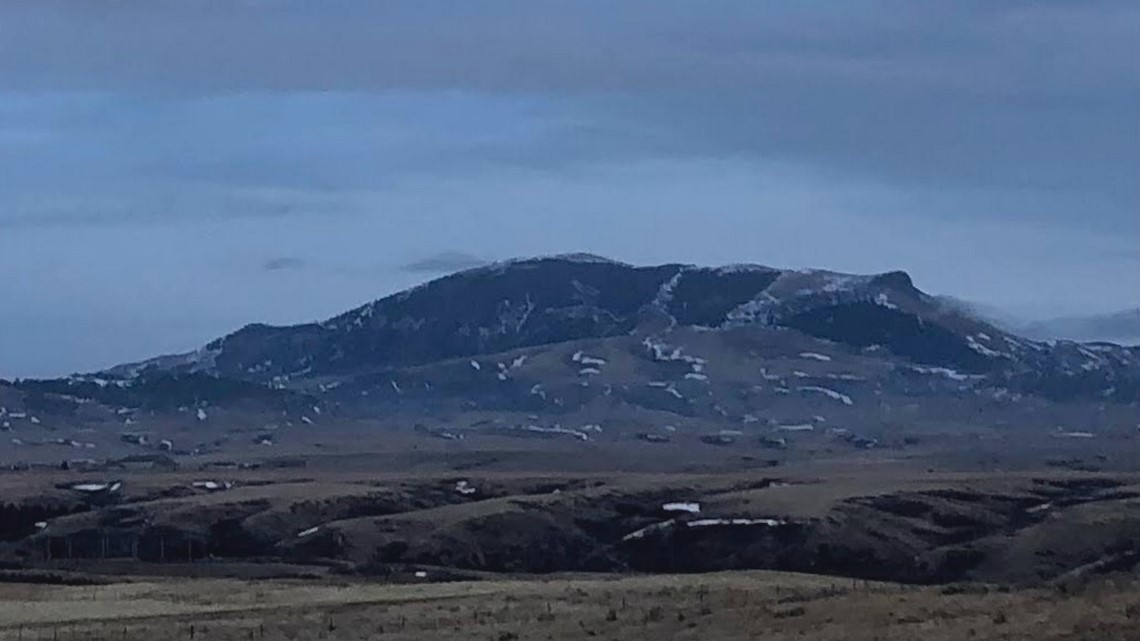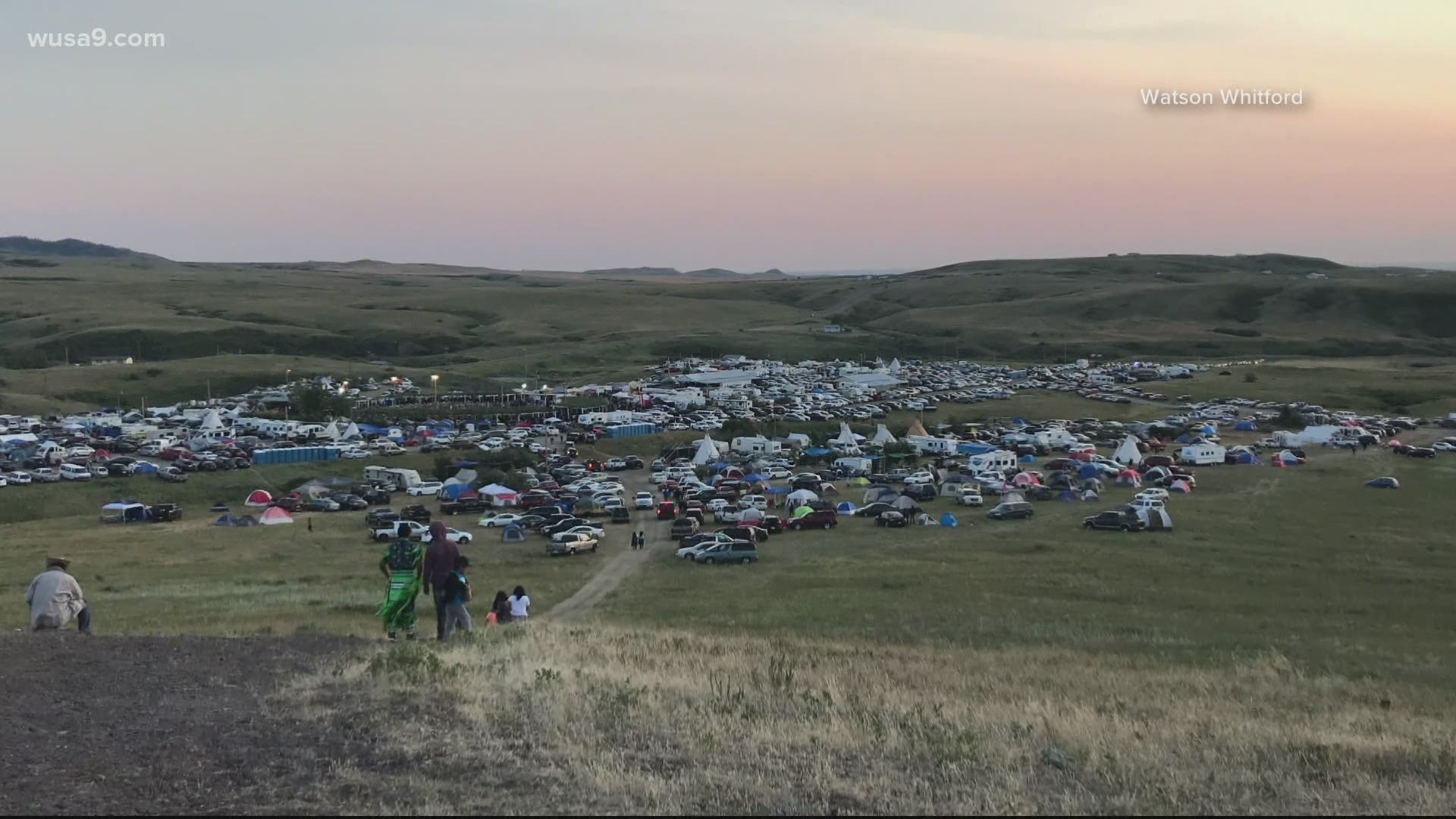WASHINGTON — The fight to mitigate the coronavirus’ spread has been waged on many fronts. Some medical professionals see the classroom as one of the most important places to share their knowledge about the disease.
Dr. Panagis Galiatsatos serves as an assistant professor at the Johns Hopkins School of Medicine.
Last year, the pulmonary and critical care physician rolled out an initiative with his colleagues at the university to help teachers learn more about COVID-19.
He said at the time, there was a lot of mixed messaging going around as to how people could keep themselves safe from the disease.
“They would just say, ‘it's hard to be a teacher and teach when all the students want to talk about is COVID’,” he said. “So, we said, ‘why don't we come in and take the responsibility off of you?’”.
Johns Hopkins HEAT (Health Education and Training) Corps’ “COVID Curriculum” would ultimately enter virtual classrooms across the country.
However, Galiatsatos noticed during the fall and winter, John Hopkins began to receive questions from more than just teachers.
“We began to hear from students [in other schools], ‘Hey, can we do this in my community?’” he said.
Galiatsatos said Johns Hopkins has received requests from students in California, New York, Florida and Alabama.
However, he said one request from a 15-year-old boy in Montana really got his attention.
“Watson’s email to me was just like the most powerful thing I've ever read,” he said.
Preserving a Culture
Watson Whitford lives in the Rocky Boy reservation, a Montana community located just an hour south from the Canadian border within the Bear Paw Mountains.
Rocky Boy is a community of 3,000 people. It includes members of the Chippewa Cree tribe.
Whitford, who is both Cree and Navajo, said preserving his culture is very important to him and his family.
“We still have our cultural teachings and ceremonies and our language,” he said. “The youth, we try to practice that to keep our languages and cultures going for many more generations.”
Whitford also has an interest in medicine. He says it comes from learning about the plant and herb remedies his ancestors relied on for care in the past.
Last year, Rocky Boy High School nominated Whitford to attend the Congress of Future Medical Leaders. The organization is an honors-only program for high school students who are interested in becoming medical professionals.
Whitford said during a virtual session in November he listened to a presentation with Dr. Galiatsatos. After that, he reached out to the Baltimore professor.
“I let him know what I wanted to do,” he said. “And he said whatever I wanted to do to help my community he would be able to help me.”
In November, Whitford said Rocky Boy had been experiencing a high number of coronavirus cases. He said he worried about what could happen to the elders who live on the reservation.
“It's important for our elders to be protected because they're the most vulnerable group and those people are our knowledge keepers of our culture and language,” Whitford said.
The COVID Town Hall
Whitford and Galiatsatos eventually devised a plan.
The pair organized a COVID-19 Virtual Town Hall for Rocky Boy.
In late December, Galiatsatos shared his knowledge about the coronavirus’ tendencies to a crowd that was more than willing to listen.
“Indigenous people all over, they found that information very helpful,” Whitford said. “We talked about the vaccination, and a lot more people felt a little more comfortable with taking the vaccination.”


The virtual event garnered roughly 4,000 views; a total higher than the population of Rocky Boy.
“I was just really happy [Dr. Galiatsatos] was able to do that for us,” Whitford said.
But Whitford played a major role in making sure the town hall got off the ground too. It was an effort that made his parents proud.
“For his age, you know, being a young man, we always say he’s an old man,” said Whitford’s father, Dustin. “There's the old man's spirit there, you know, and I'm extremely proud, extremely proud.”
Whitford’s mother, Winter, said her son has always identified himself as a hard worker.
“He's doing it right before our eyes,” she said. “And we are really extremely happy about how he presents himself and couldn't be any more proud of him.”
Galiatsatos said he wants to hold more virtual events with students like Whitford.
“I'm hoping it's kind of the beginning of a future, not just medical community, but medical scholastic collaboration that is here to stay,” he said.
Galiatsatos adds that practices can go a long way toward addressing some disparities that exist in society.
“So, many health disparities exist that medicine alone cannot fix, from education to transportation and so forth,” he said. “So, if we want to mitigate those health care disparities, community engagement has to be there.

